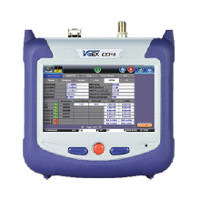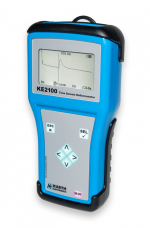
DOCSIS 3.1-powered broadband services present many challenges. Service providers face huge deadlines to deploy capable infrastructure, technicians are intimidated by the technology and complexity of services to be tested, and demanding customers expect better than a satisfactory experience.
Ramp Begins for 10 Gbps as Broadband Access Network Backbone
Many cable operators have begun to offer gigabit broadband services to residences and businesses as a way of trumping – or at least maintaining pace with – the competition. Some have leveraged bonded DOCSIS 3.0 channels or an all fiber-approach such as RF over glass (RFoG), EPON or GPON for this purpose. The advent of DOCSIS 3.1 promises an efficient way of providing gigabit services over existing hybrid fiber/coax (HFC) plant while providing an upgrade path to services with even greater speeds.
This Special Report looks at how operators choose to meet their gigabit-and-beyond requirements as they upgrade their infrastructures with 10 Gbps (and greater) capacity in mind.
DOCSIS 3.1: Cable Tackles the Gigabit Challenge
This white paper explores the significance of this groundbreaking technology and how forward-thinking professionals are using DOCSIS 3.1 knowledge to take their companies and their careers to the next level.
Prepared by Alan Breznick, Contributing Analyst, Heavy Reading, it covers topics such as:
- Cable’s Buildup to DOCSIS 3.1
- DOCSIS 3.1’s Main Benefits
- Key Challenges of Deploying DOCSIS 3.1 and how to over come them
DOCSIS 3.1 Cable’s Gigabit Gambit
With CableLabs preparing to approve the first DOCSIS 3.1 equipment and cable operators preparing to start deploying the new broadband spec, the cable industry is poised to storm into the Gigabit Era. DOCSIS 3.1 offers the tantalizing promise of data downstream speeds as fast as 10 Gbit/s and upstream speeds of 1 Gbit/s or more, along with higher bandwidth capacity for other new IP services, greater operational efficiencies, improved quality control and lower costs. But cable operators also face some daunting challenges in rolling out D3.1, including the adoption of new technologies, new equipment, new procedures, and new testing and monitoring tools, as well as the need for extensive staff training. In this special SCTE-backed webinar, we will evaluate both the opportunities and challenges that cable operators face in bringing the industry’s new spec to market.
DOCSIS 3.1 OFDM Subcarrier Analysis
With the recent addition of OFDM Subcarrier Scan, VeEX continues to enhance its best-in-class DOCSIS 3.1/OFDM field test and measurement solutions. This powerful OFDM feature provides metrics on a subcarrier basis, such as power, Noise, MER and hidden noise under OFDM carriers, without the need of a DOCSIS 3.1 connection (since the service can be impaired). VeEX’s CATV meters also offer true DOCSIS 3.1 Cable Modem and 10GE Service Level Agreement validation capabilities.
PRODUCT TOUR
VeEX offers the CX310, CX350s-D3.1, CX380s-D3.1 and AT2500-3G DOCSIS Analyzers. Equipped with a DOCSIS 3.1/3.0 cable modem, a powerful system architecture and an arsenal of automated test features, technicians have the necessary functionality at their fingertips.
Key D3.1 OFDM metrics, modem emulation and multi-Gigabit throughput speeds can easily be verified. Next generation Sweep capabilities and expanded Spectrum Analysis on the CX380s-D3.1 pushes cable verification to new limits, guaranteeing the aging HFC network is able to deliver.






